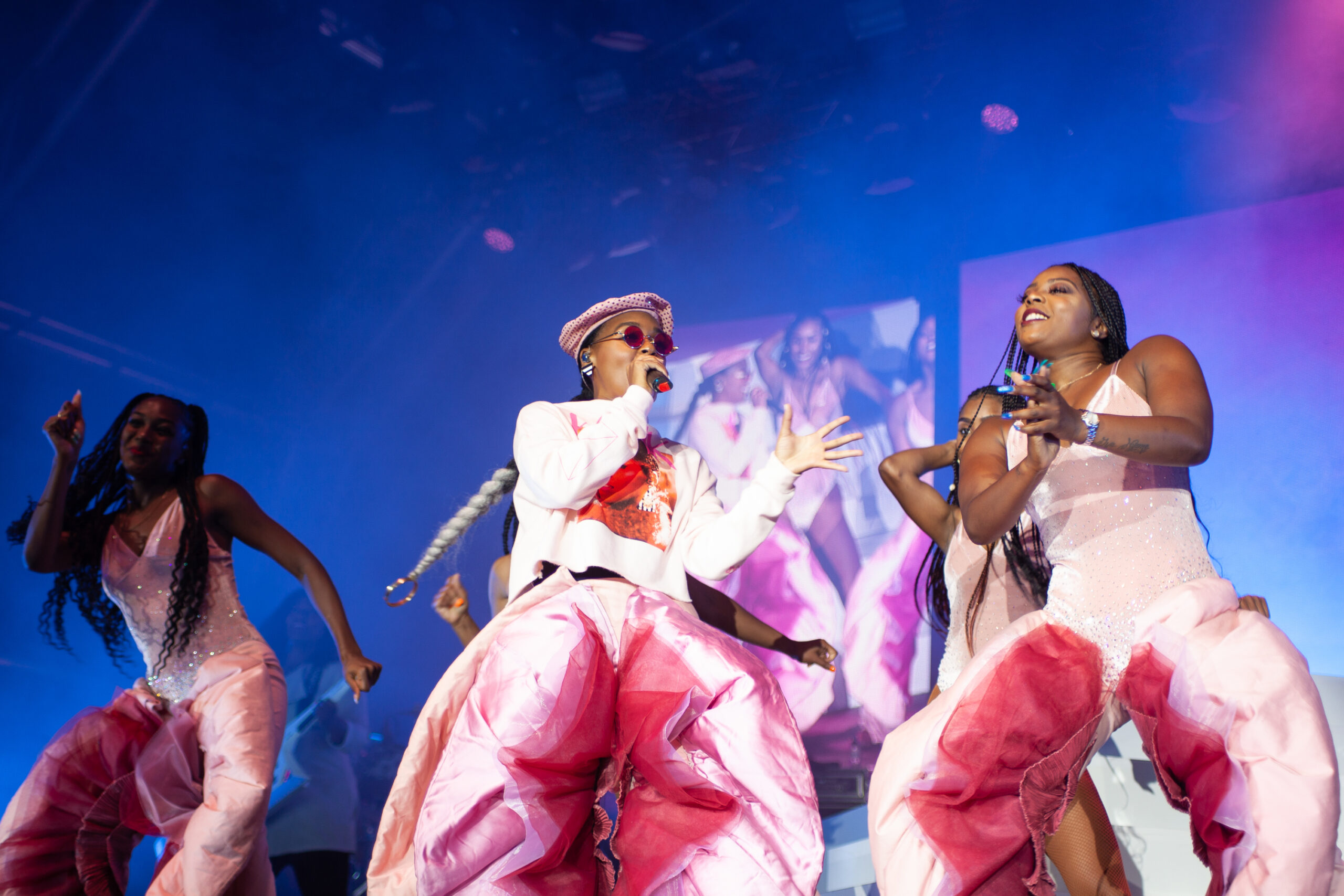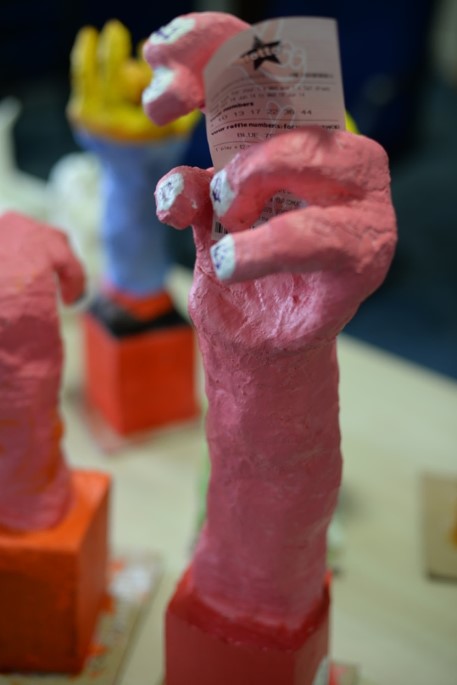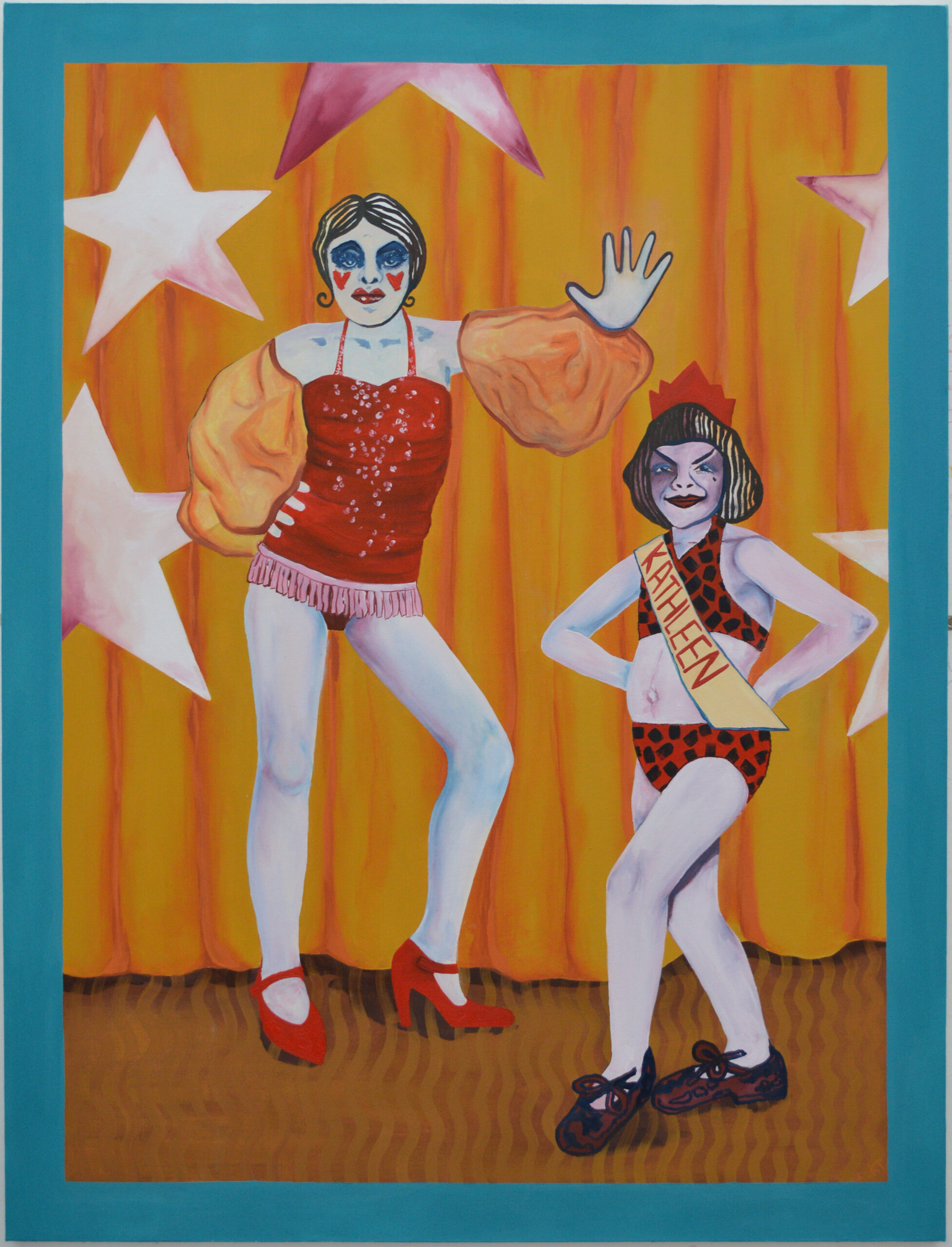
I was introduced to Alisha Kadri by Helen Wewiora, Director of Castlefield Gallery, Manchester, UK.
Alisha and I are both Trustees of Castlefield Gallery and have spent hours hatching plans and developing ideas together, with the aim of supporting the gallery’s future growth.
I love working with Alisha. She is a kind, funny, generous, bright, and brilliant creative, full of fresh ideas and a deep commitment to supporting the next generation of artists. She has a passionate vision for making the arts a fairer playing field and creating opportunities for young people at early stages of their careers.

Supporting the pipeline of talent from school onwards needs to be addressed. If young people attend their local theatre or gallery and don’t see themselves reflected in the organisation, how will they ever know it’s an industry for them?''
Please note this interview was first published on the Artist Mentor website during 2021.
Generating income streams for artists and arts programmes is a special skill, that requires an understanding and appreciation of artistic content, and of how the artist, concepts, materials, and engagement opportunities might ignite the interests of audiences, funders, sponsors, and patrons alike.
Enthusing funders requires the ability to build relationships, to connect, mirror and champion their aims and ambitions, to plant the seed of potential and develop lasting partnerships.
Fundraising and development people within organisations are key champions, helping creatives and institutions survive, thrive, and connect to wider audiences. They are often fundamental in our quest to publish and distribute challenging content yet are often unsung heroes and heroines.
If I could make one recommendation, it would be to get to know an Alisha! Or even better, share the love with your fundraising and development contacts, they can help make your dreams come true!
With over 10 years’ experience in the arts sector Alisha’s career spans across curating and commissioning work at Watford Palace Theatre and Slough Borough Council, through to leading Manchester International Festival’s philanthropic programme in 2019.
She currently leads on major donor investment for the University of Salford, where she secures high profile partnerships working alongside businesses such as Santander to develop talent strategies for employability, education, entrepreneurship, and internships, specifically targeting underrepresented groups such as women in business, BAME groups and students from challenging socio-economic backgrounds.
Alisha has been invited as a guest speaker at diversity and inclusion events most notably delivering talks for the Institute of Fundraising. Alisha also plays a significant role in leading change within diversity, development and inclusion acting as a consultant to the BAME NW Fundraising Network.
What are you doing, reading, watching, or listening to that is helping you to stay positive?
Dolly Alderton’s Ghosts is keeping me super positive – a story about memories. It’s quite light, but deep at the same time – which I like. I tend to listen to Russell Brand’s Under the Skin on a weekly basis to keep me grounded. I’m very lucky enough to live by a very big and very beautiful park called Heaton Park near Manchester. There’s a little area that has a couple of donkeys in it, so if ever I need a kick of positivity I go and spend some time with them!
What’s your special sauce when it comes to fundraising and development?
Arts / creative projects are my bag. I LOVE developing projects from start to finish and seeing it fly. Nothing better than that really (sounds corny I know!).
 Janelle Monae, Castlefield Bowl, Manchester International Festival 2019, Photo Priti Shikotra
Janelle Monae, Castlefield Bowl, Manchester International Festival 2019, Photo Priti Shikotra
How have the events over the last year influenced your ideas and working methodologies?
I try my hardest not to sweat the small stuff, but in terms of working methodologies – do the things that ignite you. I really believe that if you balance your day with something that is going to set your spirit ablaze, you’ll be way more productive in the things that are a bit duller!
What do you think should change in the way arts organisations and educational institutions operate?
Opportunity, opportunity, opportunity! We need a more equitable system where folks can progress and see themselves reflected across institutions. Particularly for arts organisations, there’s a lot of target-setting and mission/value awareness, but I think more needs to be done to help diverse and underrepresented groups succeed. There just isn’t enough representation in leadership teams in the arts and organisations tend to fall back on the excuse that diverse talent doesn’t exist. Supporting the pipeline of talent from school onwards needs to be addressed. If young people attend their local theatre or gallery and don’t see themselves reflected in the organisation, how will they ever know it’s an industry for them?
What opportunities does the advancement of technology provide for fundraising and engaging audiences for the arts?
There’s such a big opportunity for artists to give audiences a ‘behind-the-scenes’, which is personal and the bit which can convert someone to become a supporter or uplift their donation. Crowd-funding campaigns have flown in the last year. Communicating to large audiences has never been easier but keeping it personal and ‘you’ is what will keep people engaged and coming back for more.
What do you want your contribution to be in future?
My contribution is about giving people a chance, helping them on their journey and seeing them own it. I would LOVE to see MEGA changes across the arts, more fairness and equality. If I can contribute in the tiniest way, then that’d be amazing.

Do you have a favourite project or initiative you’ve worked on and if so, what makes it stand out?
I led a project called A Sign of Communication in 2014 when I was at Slough Borough Council. I worked with a super talented artist called Rubbena Aurangzeb-Tariq to develop a series of workshops with the deaf community in Slough. The project flew, around 40 participants created sculptures – all of which were BSL signs. We started the project from scratch and at the end had a full house with 100+ people attending the exhibition. I really couldn’t have been prouder, and the project resulted in further Arts Council investment into Slough.
You’ve been involved in strategically developing income streams for several organisations – what are your top 3 key learnings?
What risks have you taken in your career that perhaps did not go so well but you learnt the most from?
I would say, not listening to your instinct is THE biggest risk. I’ve learnt this the hard way in SO many capacities, personally and professionally. Understanding when things don’t feel right and making a change, is such an important skill. I’ve often dragged things out because I’ve not recognised things aren’t working quickly enough. Being agile is going to be ever more important as we progress beyond the pandemic.
What helpful fundraising and development advice and resources would you recommend?
A bit of a radical one, but I would advise road-testing ideas with people who don’t know anything about your project. If you’re developing a ‘Case for Support’, giving it to a friend, colleague or family member is a good one. They will tell you first-hand what is great or what needs to be improved. In terms of other links, I’d advise going onto YouTube and looking through Institute of Fundraising ‘How to’ videos or other fundraising videos. YouTube is a great resource!

Katie Tomlinson, Kathleen the Queen, 2018, Oil on Canvas, Obstructions, 2020-2021, Castlefield Gallery, Manchester
Do you have any advice for people wanting to work in the arts or education?
Research the organisation – make sure you’re aligned if you’re applying to for a project or job interview.
Keep your circle filled with people that will inspire, develop, and motivate you. I think we’ve all been through such a tough year and the arts and creative sector has been so deeply impacted. Staying positive and being true to yourself is what I believe is the way forward.
Follow Alisha on Instagram @alisha_kadri and LinkedIn https://www.linkedin.com/in/alishakadri/